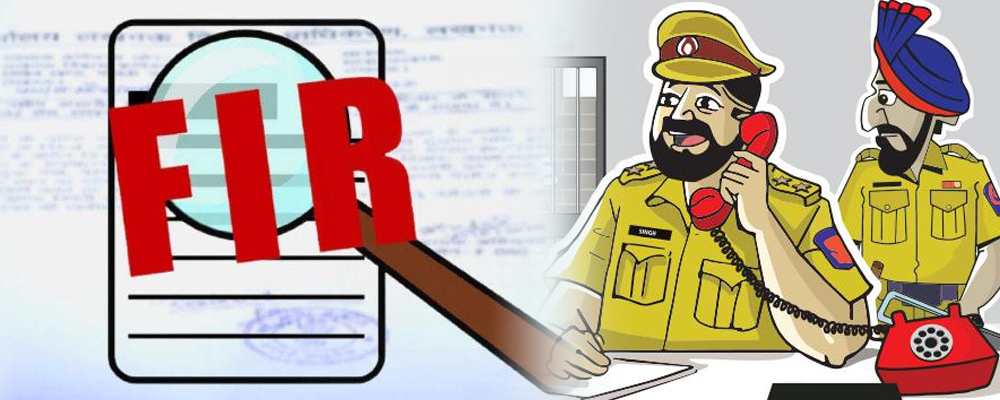An FIR stands for First Information Report and is the document through which a criminal proceeding is initiated. This document is prepared under Section 154(1)(x) of CrPC and can be lodged only in cases of cognizable offences. Frivolous FIRs can be predicted in certain cases, as might be a consequence of some disturbances in personal relationships, people are also threatened with an FIR or the police complaint with some ulterior motive. The statistics of India in relation to false FIRs can be disturbing and registration of such information can be said to be a frequent occurrence. To deal with such times, it is important to know what remedies are available to a person before and after a false FIR or complaint is filed.
Before FIR is Filed:
An action that needs to be taken immediately before the FIR is filed is drafting a criminal complaint against the person who is causing a menace threatening to file an FIR. The complaint should include the circumstances under which such a threat is made and the wrongful gain that is expected from this threat. Such complaints should include intricate details and should be posted and mailed to the office of the Senior Superintendent of Police and the police station. This complaint can be made under Section 154(3) of CrPC. While such a complaint can also be filed without a legal expert, it is better to file the complaint with the help of such an expert as the requisite details for a valid and substantial complaint can be included in it.
The Code of Criminal Procedure has laid down a provision of anticipatory bail under Section 438. Anticipatory bail can only be sought for charges which are non-bailable in nature. An application can be made to the Sessions Court or High Court for bail to be granted in case an arrest occurs. Such applications can be granted by the courts with certain conditions.
Need A Legal Advice
The internet is not a lawyer and neither are you. Talk to a real lawyer about your legal issue

After FIR is Registered:
Once the false FIR is registered, the concerned police officer might provide certain intimations. When such intimation is received, the person who is falsely accused of committing an offence can visit the police station to file a counter FIR. There are certain offences laid down under the Penal Code, which are committed if a false FIR is filed at the police station. Under Section 182, giving false information to a public servant knowingly in order to cause injury or annoyance to another person can attract imprisonment of up to six months or a fine of up to one thousand rupees or both.
An act of falsely charging someone with an offence, know that there is no valid legal ground for such proceeding or charge has been stated to be a criminal offence under Section 211 of the Indian Penal Code and the such offence can attract imprisonment for a term which might extend to two years or fine or both. If such charge which has been instituted is punishable with death or life imprisonment or imprisonment with more than seven years, then the complaint might be punished with imprisonment can extend up to seven years and shall also be liable to a fine. Thus, under these sections of the penal code, a counter FIR can be filed against the complainant.
A remedy under the CrPC is also available if the police officer refuses to file the FIR. Under Section 156(3) of CrPC, the Magistrate is empowered to direct the officer in charge of the police station to register the criminal complaint and make all the necessary efforts to hold a proper investigation. Thus, a person can visit the court of a magistrate to ensure that the FIR is filed against the person.
Application Under Section 482 to Quash False FIR:
An application can be made to the High Court to order the quashing of the FIR. Here, the burden of proof lies on the petitioner and it has to be proved to the court that the FIR has been filed with an intention to cause injury or trouble and is false. If the High Court is convinced that the FIR was frivolously and fraudulently filed with the goal to silence the injured party, it may grant the quashing of the complaint.
It is recommended that once such a situation arises, where a false FIR or complaint is expected to be filed, a person should immediately seek legal advice. The legal procedure in India can be draining, tedious, and also prolonged. It is difficult for an ordinary man to understand the incidental aspects of a case matter and thus, the process needs to be dealt with expertise and experience. Greater care can be expected from a legal expert while dealing with such situations. Taking legal advice at an early stage shall ensure that loopholes are not created while dealing with the threat of a false FIR and that discrepancies do not arise in the later developments of the matter.





 Talk to a Lawyer
Talk to a Lawyer